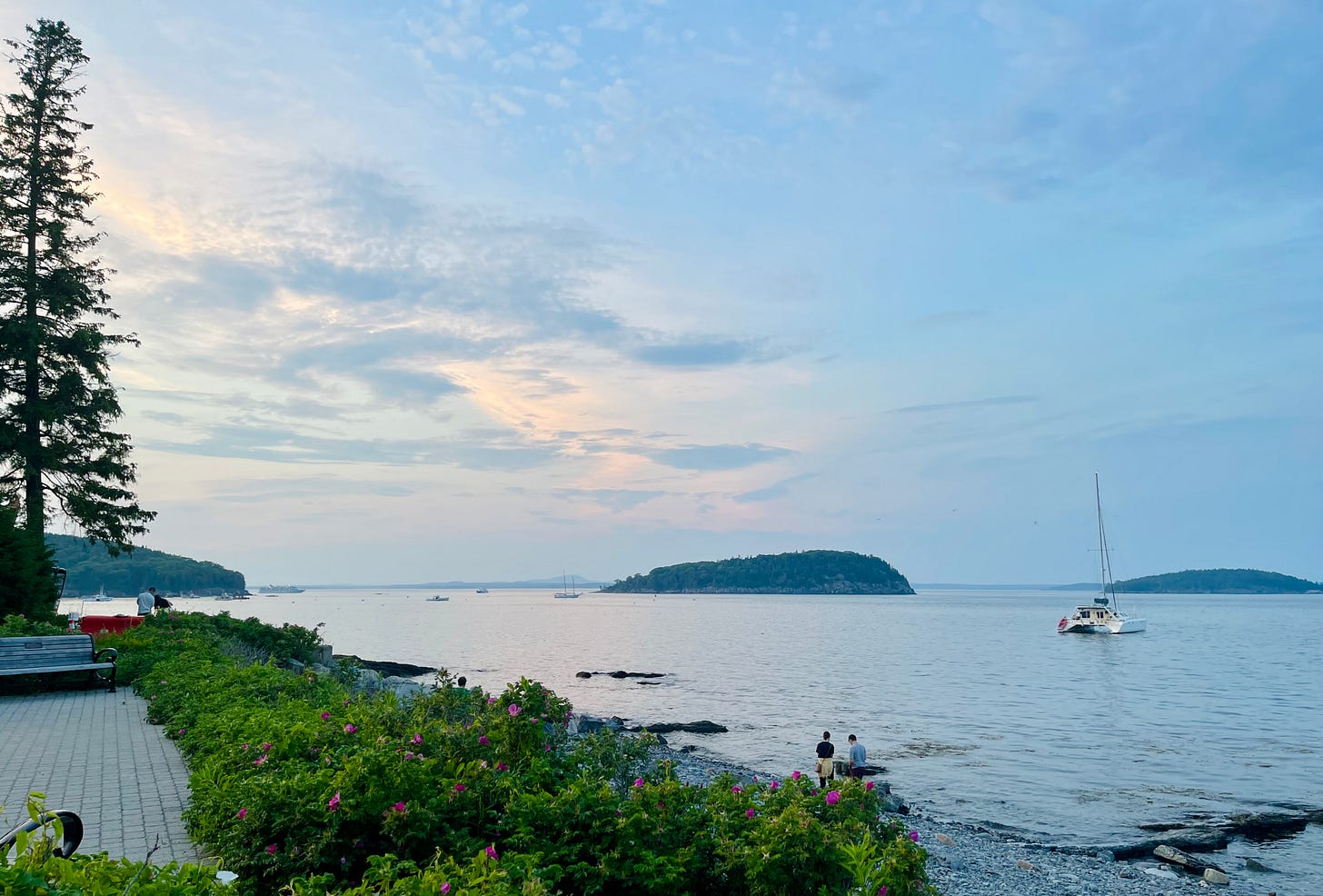Earlier this week, I looked at my daughter, Em, and said, “Dude, I am burned out.”
Yes, I do talk like a 1990s surf-boy.
And she said, “Mommy. Go outside. Let’s take a walk.”
“But I have so much to do.”
“Just get away from the computer,” she said. “Take 30 minutes.”
I did and it helped.
The magic here is that we live on the coast of Maine, which is beautiful, but it is also that Em knows me and knows what helps me when I suffer from overwhelm in life. Sometimes being outside cures me when I feel a bit creatively overwhelmed, too, but not all the time.
That means I need more knowledge to help figure out what to do in times when a walk just doesn’t cut it.
So, I went researching. What can help me and the writers that I work with (that’s you all) when we feel a bit creatively worn out, when we stare at the blank page (or the revision page) and go “meh.”
WHAT EVEN IS CREATIVE BURNOUT?
Author and speaker Scott Berkun says it’s “the point where creative energy has been pushed beyond recovery.”
“Like a well of water, creative energy replenishes itself slowly over time,” he says. “A person who has pushed their creative well too hard for too long will, like its watery counterpart, one day find it empty. Usually, by the time you notice something is seriously wrong, there’s little energy left to work with.”
Hm. That feels dire. I am not a fan of dire, but it’s a great explanation.
NAVIGATING IT
Last month DIYMFA’s Gabriela Pereira wrote a post about creative burnout and how to navigate it.
And she has six points. Some are things most of us have heard before like:
Take small, incremental steps toward your goal
But there are two bits that resonated with me on this hot Wednesday in Maine:
“Zoom in on what lights you up.
“Set constraints on what wears you down.”
I was covering a frozen yogurt business opening in my town. And the co-owner of this family business asked me how I was doing, which was kind of her. Because I have no filter and I am terrible at lying, I actually told her that I was sort of in a weird space. It’s sort of a transitional space, where I’m building things up and also trying to let go of other things.
And she said, “Transitions are so hard.”
That one sentence? It was an epiphany for me. Transitions are really hard. And a lot of creative burnout stems from transitions:
Moving from one project to another
Going from traditional publishing to self-publishing or vice versa
Moving things around in your outside world (new home, new honey, kids go to college, you get a new job, lose a job, have a baby, get a kitten)
Shifting schedules
There are so many spaces where we undergo big transitions in our lives. But I think that Pereira’s advice about zooming in on the good and constraining the wearying? It’s pretty brilliant.
She writes,
“As writers, we need to figure out what aspect of our work ignites our passion and we need to zoom in on the things that light us up. Whether it be crafting compelling characters, painting vivid settings, or weaving intricate plots, when we reach a point of creative drought, we must rediscover the elements that bring us joy and purpose. This is how we refuel our creativity.”
For constraints, she simply suggests setting a time frame for tasks you have to do but pull you down.
HERE ARE SOME OTHER WAYS OF LOOKING AT IT?
Know that sometimes things suck. Growing can also feel a little yucky. Change isn’t a state a lot of people enjoy. The unknown can be frightening, but when you know that sometimes you are going to feel burnt out, it helps push you through to that next stage of growth.
Remember to take care of yourself. Americans can be a burn-out society, even us artistic ones. And when it’s all achieve, achieve, compete, achieve, when we create our worth based on our product or our production, we forget to remember there is value in other things. Working out, meditating, taking a bath or even taking a second can be super helpful. Ideas come from those quiet moments sometimes.
Make life sustainable: You cannot work all the time. You can, but then you lose out on all other things. If you can approach work like a long-term goal where you have to conserve energy while moving forward. It helps. Think hiking the a mountain range. You can’t sprint the whole way and never sleep. You’ll get hurt.
QUESTIONS TO ASK
Over on Psychology Today, there’s another approach by Eric R. Maisel Ph.D.
He suggests looking at the questions “to reflect or journal on:”
“What is your fatigue trying to tell you?
“What does true rest and rejuvenation look like to you, and how can you make it a priority?
“How can you nurture your creativity?
“How can you slow down and find the inspiration that is all around you?
“What would fill you with energy, creative or otherwise, at this moment?”




